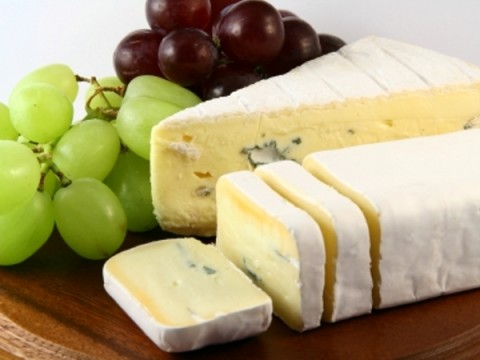Camembert is often mistaken for brie, though they are quite different. Camembert is typically produced in the Normandy region of France. Camembert is also produced in small, individual rounds that are fully coated in a white mold rind. Brie is made in larger rounds which are then cut into wedges, so two sides of the brie are rindless. Camembert, however, is fully coated in the mold rind. The flavors are similar, but there is more tanginess from the rind. Like brie, Camembert is made from unprocessed milk, and the mold on the rind can be harmful to a pregnant woman.
Feta

Most of the feta that one buys in the grocery store is domestic and made from cow’s milk. It is made using a lot of salt. The salt is the real danger to domestic feta, especially if a pregnant woman is prone to retaining water or has hypertension. Authentic feta is made from unpasteurized goat’s milk, or sometimes sheep’s milk. This unpasteurized milk, and the presence of so much moisture, makes for the perfect environment for listeria and other bacteria, which can be harmful to a fetus.
Blue Cheeses
As much as you may be craving the sharp tang of blue cheese, these mold-ripened cheeses should be avoided while pregnant. Again, because the cheese is not pasteurized it can harbor bacteria. If the cheese has blue veins in it, it has not been pasteurized.
Mexican Cheeses
Queso blanco, panela and queso fresco should also be avoided while pregnant. These tangy and salty cheeses are quite tasty, but they’re made from soft, unripened cheese that has not been pasteurized.